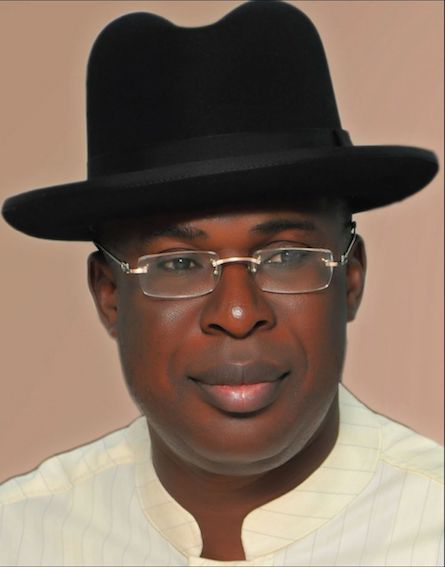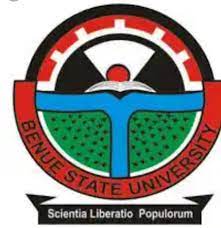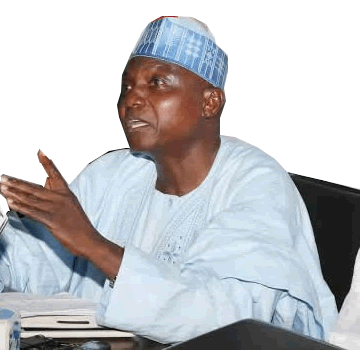EDITORIAL
Production Cost Padding in the Oil Industry

The Group Managing Director ,[GMD] Nigerian National Petroleum Corporation,[NNPC] Mele Kyari, recently hit the nail on the head on one of the greatest challenges facing the oil industry : the sharp practices surrounding production of crude oil. He disclosed with indignation recently that oil firms and contractors pad production cost in Nigeria in addition to frivolous figures, which surged the cumulative production cost in the country above what is obtainable in other oil production countries of the world.
While speaking at the at the Third Webinar Series organised by Nigerian Association of Petroleum Explorationists [NAPE] with the theme; “the impact of COVID-19 on Nigeria’s oil and gas industry- the way forward, ok” the GMD said that government would revoke contracts and cancel projects for any firm that would not adhere to production cost of $10 per barrel.
According to him, “The era of some of our partners producing at a very high cost will no longer be acceptable to us anymore. It is either they become more effective at what they are doing by cutting cost or be ready to be shown the way out,” he stated.
The NNPC GMD further lamented that the high cost of production was unacceptable and was as a result of a number of factors. Some of the factors, according to him include: structural inefficiencies; that exist in the system, and processes, environmental factors, which every contractor factors in while doing business here in terms of human resources, materials or whatever.
He explained some of the devices used by some of these contractors and oil companies to include “issues of environmental consideration.”
He said what the Federal Government was addressing the issue so that they could work together to reduce cost , and according to him the discussion was even going on when” COVID-19 came and threw the challenges on all of us at the oil industry and with oil selling for less than $10 per barrel”.
“We cannot continue in the business unless something is done about the cost, and it became a very clear opportunity for us to hype our engagement with our partners. So we have an industry that knows that cost must come down,” he submitted.
For oil industry watchers and analysts, the NNPC GMD’s call could not have come at a better time than now. Critics are nevertheless not happy thay the previous chief executives of NNPC had virtually been held to ransom on the account of oil production cost padding, which is one of the sharpest malpractices in the Industry.
The joint venture partners had always put forward the argument that because of the hostile terrain of drilling oil in the Niger Delta in particular, as well as the environmental degradation, they had no choice but to charge high for oil production in the region.Matters got worse with the increase in kidnapping and hostage taking, which they argued made oil production quite on the steep side in Nigera. While some of the arguments are plausible, it is not every time that some of these challenges occur.
Accordingly, these factors do not justify why Nigeria continues to record one of the highest costs of drilling oil in the world. If Saudi Arabia and Russia could record between $2.8 and mere $3 per barrel respectively for production, there is no reason why Nigeria cannot work to bring lower, its production cost, which is one of the highest in the world. In our view, padding, is another name for corruption.
It is simply corruption given another name. But for the COVID-19 pandemic, which sank our oil production and demand for the product to a very low ebb, it would have been business as usual as far as the padding in the industry is concerned.
The present NNPC leadership should back his words with action by going beyond rhetoric to address this malpractice that has denied the nation a lot of its revenue and resources. In all, the present GMD deserves commendation for coming out to admit that such a big problem exists, especially in the system, where others had previously turned a blind eye.
EDITORIAL
Need to Accelerate Payment of Pensions

Over the years, retirees and pensioners in Nigeria have faced endless travails over non prompt payment of gratuities and pensions. In the process, many elder statesmen who have diligently served this nation have died without receiving their benefits, leaving their children and relatives in pain and penury.
The question agitating the minds of retirees and pensioners is why the beneficiaries of the pension can’t be paid promptly on retirement without making them go through agonizing pains that they sometimes have to offer bribes to fast-track the process. It is unfortunate that receiving one’s benefit after retirement has become a nightmare.It is even more concerning that the category of individuals in question are very senior citizens who have sacrificed the best part of their lives serving the nation. Retirement should not be a death sentence; it should be a period workers would happily look forward to with joy, hope and pleasure.In compliance with the Pension Reform Act (PRA) of 2004, the Pension Transitional Arrangement Directorate (PTAD) was established in August 2013. PRA also gave rise to the National Pension Commission (PenCom) to regulate, supervise and ensure the effective administration of pension matters in the country. PRA was repealed and re-enacted in 2014.With the this Act, PTAD took over the management of the pension offices of the civil service, police, customs, immigration, prisons and over 200 treasury funded parastatals. Despite the good intentions of the architects of the pension reforms, unnecessary delays in pension and gratuity payment to pensioners as well as alleged shady deals have characterized the National Pension Commission, thereby defeating the purpose of effective and efficient administration for which it was established.Following the outcry of beneficiaries over endless delays in the payments of persons and gratuities, the commission recently introduced an e-clearance platform to its website. The platform according to the commission, is to supply as well as expedite pension clearance certificate (PCC), for pensioners.In addition, pensioners can now do their submissions for verification from the convenience of their homes facilitating, real time tracking update, reduced paper work, enhanced security, data protection for enhanced user friendly interface.However, it is not yet Uhuru for the senior citizens even as the commission likened what it called a positive development to douse the criticism that has bedeviled the process in recent times as speculations were rife that the federal government intended to borrow from the fund for infrastructure development. This rumor was perceived as absurd and sad going by the apparent hardship pensioners are going through occasioned by the delays in payment of their monthly pensions.Again, the removal of fuel subsidy has compounded the suffering of pensioners. It has elevated their plight into more economic hardship, with the pension fund lying apparently inaccessible by pensioners and prompting the federal government to contemplate the idea of taking a loan from the pension fund for capital project development. This move should be well considered before a final decision is takenThe agonizing hardship due to the economic downturn in Nigeria has inflicted terrible pains as most pensioners and retirees are suffering in silence, yet those who are saddled with the responsibility to manage the funds are mercilessly embezzling, misappropriating or pilfering the funds. The two billion naira Maina-gate readily comes to mind. Could both NPC and PFAs be the barrier to a repeal of obnoxious Pension Act; that has enslaved workers and retirees to the undue advantage of government officials at the helm of pension fund as well as their Pension Administrators who are said to be using PFAs as fronts for politicians in collaboration. That is why it is believed that the same politicians in the legislative chambers will never support bills to abrogate laws like the pension Act and give it a human face.Simply put, man should not be made for the law but the law should be made for man. Pension Act advocates have expressed reservations and concern in both mainstream media and social media on the plight of pensioners and retirees. Some have opined that both civil servants and retirees should be allowed to withdraw all their savings and invest in their endeavor of interest.According to these pensioners and retirees advocates, the Pencom/PFA Scheme is an unsavory exploitation of workers and poor retirees as on retirement at 60 years, a retiree can only through thick and thin access 25% of his or her fund, with the balance being spread over 15years on monthly payments. In other words the retiree is expected to die at 75 years.It is the belief of concerted Nigerians that most pensioners and retirees will do better in business for themselves and get better Return On Investment (ROI), if they have direct access to their pension benefits. And that is why the amendment of the Pension or total abrogation will enhance retirees’ purchasing power and boost the economy in the process.Pension Act amendment protagonists have suggested that civil servants should be allowed to access their funds immediately after retirement. The amendment of the Pension Act in this regard will go along way serving as a palliative to civil servants as well as allow them to plan and invest for a better life after retirement. The simple illustration below depicts the exploitation of pensioners and retirees. A civil servant retires at 60 and gets an entitlement of N10m and decides to invest N7m in money market or government treasury bills at the usual 15% PA, his or her monthly interest will be N87,500 while PFAs pay N19,500 on the same amount monthly. This is exploitative. From the above illustration, the pensioner or retiree is losing over 55% of what he should have earned from money market or Government Treasuring bills.A recent survey in UK has it that pensioners are not at ease with the government and pension administrators as the survey states that around a 3rd (32%) could afford to contribute more to their pensions now in order to boost their retirement income. But while savers are seeing the value of pensions, the survey discovered that there remains a fundamental misunderstanding by savers about their pensions with many individuals unsure of how their contributions were being invested on their behalf.As at the period of the survey, the UK Prime Minister was forced to announce an emergency £350 of support per household to help with the cost of heating. As a result, almost half (47%) of those not retired say that they cannot afford to save right now due to the rising cost of everyday living. Relatively, the above action can be said to be usage of Pension Fund to improve the standard of living for UK civil servants.In this era of excruciating economic agony, a presidential executive bill to unbundle the pension Act of 2014 has become necessary as it would go along way in serving as succor to civil servants and pensioners. This bill can also serve as an auxiliary to the pending move by the senate to amend the Pension Act to enable Nigerians withdraw up to 75% of their total cumulative pension savings; this will also help douse the negative believe that PFAs are grossly manipulating and exploiting Nigerian workers.Also, production will be overwhelmingly stirred up, should this critical stance on abrogating the Pension Act be acted upon.DAILY ASSET insists that there is a compelling need to address the plight of retired senior citizens in the country, with the Pension Asset Fund currently standing at 21.14 trillion naira as of the end of August 2024.EDITORIAL
Hardship: Time to Reverse Lopsided Reforms

That poverty-stricken Nigerians are dying needlessly daily as a result of hunger and depression is no longer news. No thanks to multidimensional poverty, poor mental health and lack of affordable health care ravaging the land.
There is galloping inflation, occasioned by haphazard policies of the Tinubu-led administration; particularly the abrupt removal of fuel subsidy.
To worsen matters, there is widespread and excruciating starvation and hardship which is gradually choking and snuffing life out of many Nigerians.The situation has deteriorated to an abysmal level that urban and rural poor can no longer afford high prices of foodstuffs and commodities in the market and this is a serious source of concern.
On the other hand, the rich are not finding it easy either, because of mounting requests for assistance from the down-trodden. Worst hit by the economic crisis are household consumables. To eat once a day in most homes today is a luxury.
All is not well in Nigeria. Yet, the political class enjoying jumbo pay and bogus government allowances have continued to urge the Nigerians to exercise patience, insisting there is “renewed hope”. Alas, what is in existence is hopelessness and hunger in the land.
According to the National Bureau of Statistics (NBS), in Sept., food inflation increased to 32.72 percent from 23.67 percent in the corresponding year, an unfortunate reality largely due to the sudden fuel subsidy removal by President Bola Tinubu. Instructively, Vice President Kashim Shettima admitted during the recent Nigerian Economic Summit in Abuja that some of the economic reforms of the present administration have been painful, though inevitable.
According to the Vice President, many other nations like Nigeria were experiencing significant economic problems over the past few years.
“Nigeria’s growth trajectory has been volatile, heavily dependent on oil revenue and unable to create enough jobs to keep pace with our rapidly growing population. As a nation, we must prioritize economic diversification.
“Considering this, the present administration, through the Renewal Hope Agenda has embarked on bold and courageous reforms designed to create an environment that fosters sustainable economic growth and shared prosperity, though painful at the moment. Our focus is on sectors that can offer inclusive and sustainable growth such as agriculture, manufacturing and the digital economy,” he explained.
While commending the Nigerian Economic Summit Group (NESG) for being in the forefront of helping the government by creating a platform for meaningful conversation on the economy, he said the opportunity has made it imperative to halt the catastrophe before it consumes the country.
Despite the fact that the recent figures from the NBS show that inflation fell to 33.40 percent in the month of June, the reality is that inflation is still driving up the prices of essential commodities like food and petrol, thereby exacerbating the hardship and hunger ravaging the urban and rural poor, as small increases in the cost of basic goods and foodstuffs impact negatively on low-income families.
Although records show that food inflation has slightly decreased to 39.53 percent from 40.87 percent, as a result of harvesting period, the slight reduction has not translated into lower prices in the market.
Nigerians are of the common view that the avoidable economic downturn in the country, owes much to the unprecedented devaluation of the naira – a direct consequence of high inflation – which has reduced low-income families to unimaginable levels of desperation and destitution; to the extent that those caught up in this web are now sacrificing essential needs like their children’s education and often times healthcare just to live from hand to mouth.
It is fair to state categorically that the removal of fuel subsidy has really brought about untold hardship to millions of Nigerians because fuel price hike has driven up the prices of goods and services throughout the country.
Despite the monumental corruption in the oil sector vis-a-vis the so-called subsidy regime, the greatest victims of subsidy removal are the masses. This is because fuel is the essential ingredient that drives and revolves round most activities in the country, ranging from transportation, small and medium scale enterprises, petty businesses, technology and tourism.
During the campaign to remove the subsidy, the issue that elicited a lot of concern was federal government’s inability to identify and penalize those benefiting from the fraud called fuel subsidy.
No matter the level of corruption in the oil industry, the Nigerian Midstream and Downstream Regulatory Authority (NMDPRA), the drivers of the reforms in the sector in collaboration with Nigerian National Petroleum Company Limited (NNPCL), should have been able to stop the payment of subsidies to the faceless importers of petroleum products and channel the resources into the provision of infrastructure and employment for the benefit of the people, rather than outright removal of the subsidy, a move which has dealt a major blow to the nation’s economy.
Halting the hardship in the country and reviving an economy which is contending with high fiscal deficits, low Gross Domestic Product (GDP) and high inflation are as complex and challenging as fighting corruption in a nation like Nigeria. But it can be achieved if the government becomes more strategic and intentional in its game plan to reverse the ugly trend.
If there is (political) will, there must be a way. The popular refrain among government officials is that Nigeria is not the only country passing through economic hardship. That is not far from the truth but mouthing such excuses without marshaling any action plan for sustainable economic growth could be suicidal.
The federal government has consistently appealed to Nigerians to tighten-up their belts and they have complied and are still complying. Surprisingly, top government officials are not practising what they are preaching, whereas more than a 100 million Nigerians living in extreme poverty are subjected to unbearable austerity measures.
A government that fails to encourage and promote transparency and accountability does not have the legal and moral justification to urge people to continue tightening-up their belts. There is an urgent and compelling need for the federal government to implement the much orchestrated fiscal discipline by reducing non-essential government spending and improving the effectiveness of public infrastructure, security and welfare of the citizenry.
Unless and until the government stops its unnecessary lip service of insisting that Nigeria is on the path to progress and urgently reduces its over reliance on oil exports and promote other critical sectors like agriculture, manufacturing and technology, the much needed economic revival would remain nothing but a dream.
Again, Small and Medium-sized Enterprises (SMEAs) must receive the support of government as this would foster entrepreneurship and innovation. But without power such expectations are impossible. Sadly, the crisis in the power sector is not going away. Instead, the growing challenge has overwhelmed the present administration just as those before it.
DAILY ASSET strongly believes that addressing inflation, the fallout of which is the untold hardship Nigerians are experiencing today, requires a frontal and comprehensive approach from the federal government rather than the lopsided reforms that encourage wasteful spending to the detriment of the masses.
For instance, government cannot overhaul and fix its moribund refineries which have gulped over $25 billion in the last 27 years but can unilaterally jack up prices of petroleum products, the way it did under subsidy removal.
Similarly government must not arbitrarily raise cost of electricity and other taxes without addressing epileptic power supply and other associated challenges.
There must be a complex balance of pragmatism and sustained commitment to promote, sustain and consolidate economic stability, growth and productivity.
EDITORIAL
Repeal Auditor-General Ordinance Act of 1956 Now

The move to reform the Nigeria Auditor General Ordinance Act of 1956 by the National Assembly has been ongoing for over a decade. Though there were significant developments, the bill got stuck at the bi-camera lawmaking chambers where it has continued to undergo series of reviews before it will be transmitted to the president for assent.
Crafted to re-enact the Audit Act, the bill, introduced in the House of Representatives in 2014, has two significant provisions – the independence of the Office of the Auditor General for the Federation (OAuGF) and the establishment of the Federal Audit Service Commission and other matters related thereto.
The passage of the bill shall not only make the OAuGF to be financially independent but shall also grant it administrative autonomy to have powers to recruit, promote and discipline their staff.
It will also empower the OAuGF to carry out audits on all government Ministries, Departments and Agencies (MDAs) and hold them accountable for their stewardship in the use of public resources.
Additionally, it will pave the way for the establishment of the Federal Audit Service Commission which shall be responsible for handling all matters of recruitment, promotion and discipline of members of staff of the office and the Audit Commission.
When the colonial government established the Audit Ordinance Act of 1956, the instrument provided for the position of the Director of Audit. It was meant to provide for adequate and appropriate checks and balances in the colonial financial system.
But for the first time, the 1999 Constitution of Nigeria (as amended), provided for the Office of the Auditor-General for the Federation and the appointment thereof.
With endemic corruption in the country and the continued outcry for stronger institutions to help sanitise the public financial sector, by entrenching the principles of accountability and transparency to prevent and curb corruption, it is imperative and absolutely necessary to advance the course of the 1999 Constitution by way of providing for a robust Audit Act that will make clear and unambiguous provisions required to effectively carry out the mandate of the office.
Recognizing the job of auditors in ensuring that public officials and institutions are held to account is undeniably one of the toughest jobs in government, experts have considered the Audit Bill as a powerful instrument to address issues of poor governance, wastes, inefficiency, lack of accountability and transparency in the public sector.
Therefore, when passed and passed by the president, the bill will also give a stronger backing to the fight against corruption as it guarantees and safeguards operational independence of the OAuGF as a Supreme Audit Institution(SAI).
Additionally, once the bill is passed into law, the Auditor-General shall be vested with more powers to inquire into, examine, investigate and report as he considers necessary on the expenditure of public monies and money advanced or granted to a private organization or body in which the Federal Government has controlling interest.
The financial and administrative independence which the Audit Law will bestow on the office, will complement the legal independence it already enjoys by virtue of Section 85 of the 1999 Constitution (as amended). The administrative autonomy will enable the OAuGF to attract quality human capital at competitive standards for improved efficiency; as recruitment of members of staff will now be conducted professionally by the Federal Audit Service Commission with improved remuneration packages that will challenge them to discharge their duties effectively and professionally too.
Internationally, the OAuGF shall be placed at par with other Supreme Audit Institutions (SAIs). Resultantly, the office shall be accorded more respect and recognition as a credible source of independent and objective insight and guidance to support beneficial change in the public sector. This will also enable those charged with public sector governance to discharge their responsibilities in responding to audit findings and recommendations and taking appropriate corrective actions.
When MDAs fail or delay the submission of their accounts and records or Audited Accounts to the OAuGF without sanctions, it affects timely preparation of the OAuGF Annual Audit Report to the National Assembly as envisaged by the Constitution of Nigeria (as amended) and as a result, the information contained in the report lose its capacity to influence decisions.
DAILY ASSET is of the view that aside from the passage of the bill, the OAuGF should be placed on first line charge. It must be adequately funded to enable it to effectively audit the 1023 MDAs and over 123 embassies and foreign missions.
Also, the government must ensure adequate provision of accommodation for auditors for effective discharge of their assignments. Auditors on oversight assignment should not reside in the same office with the MDAs they audit for a fair and balanced audit report.
Finally, the task of fighting corruption and blocking wastes in systems is a huge challenge that requires all hands on deck hence the need for inter-agency collaboration, cooperation and sharing of vital information between public institutions charged with responsibilities of fighting corruption.





















